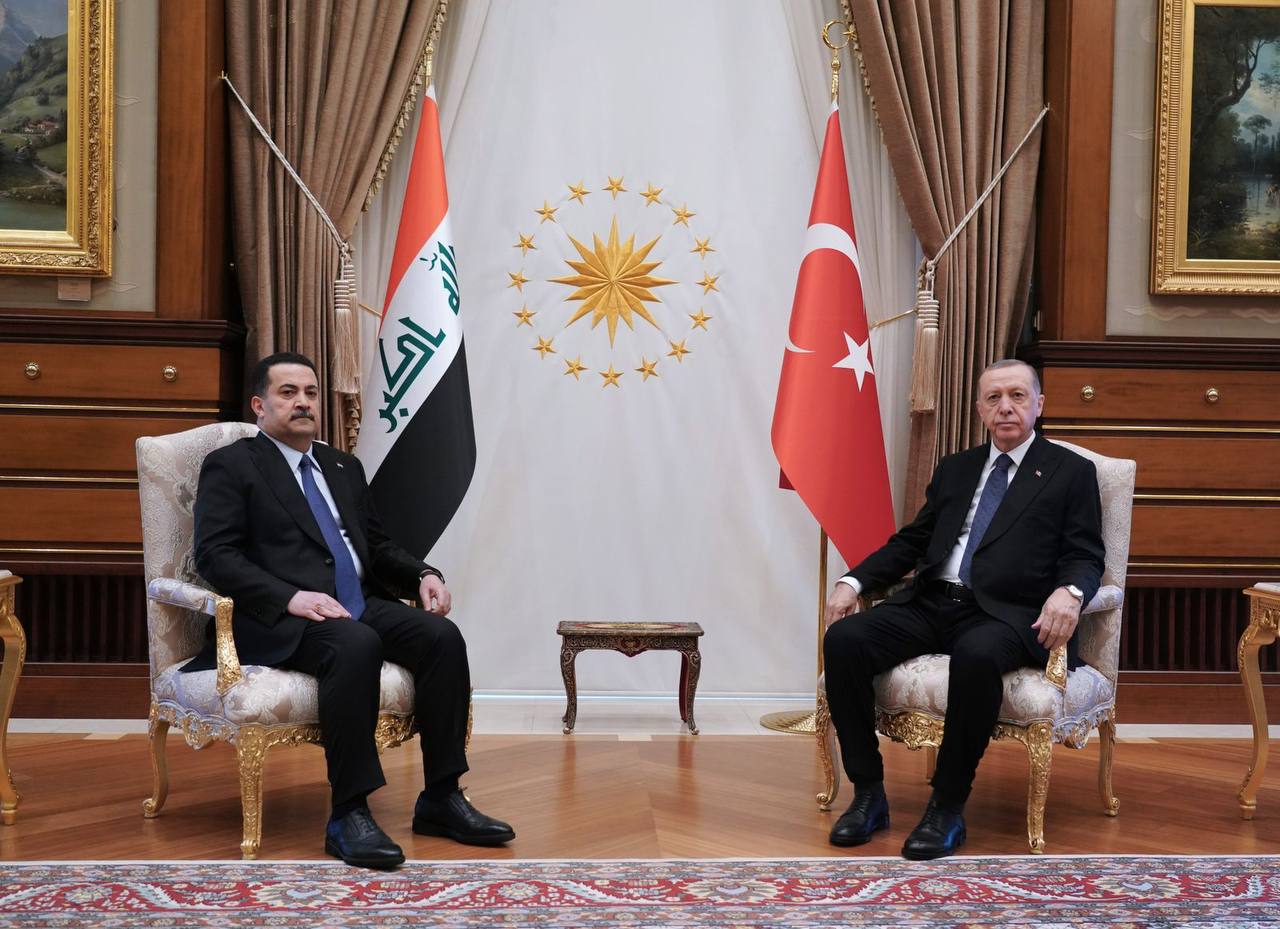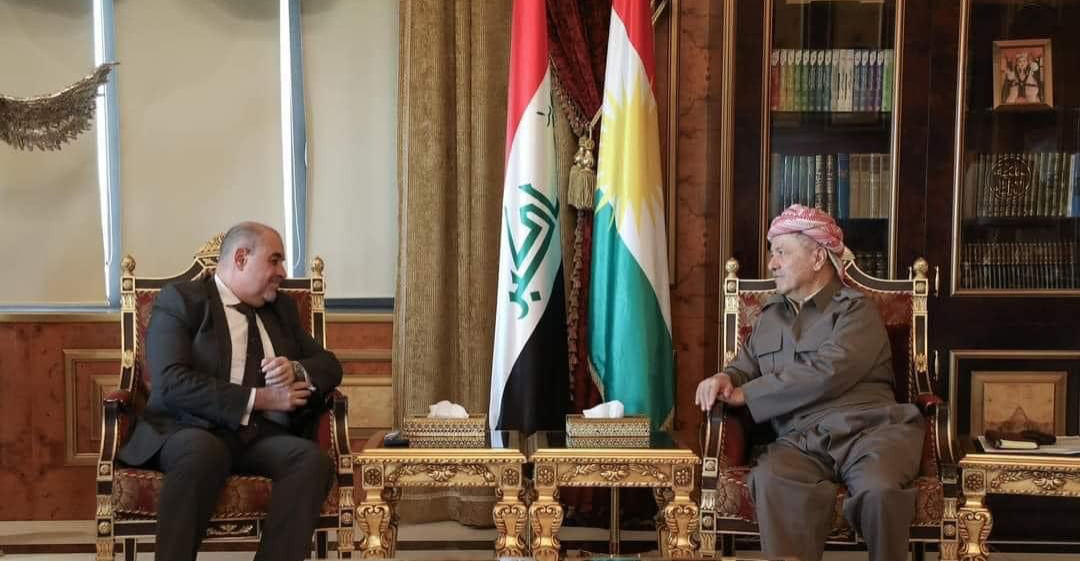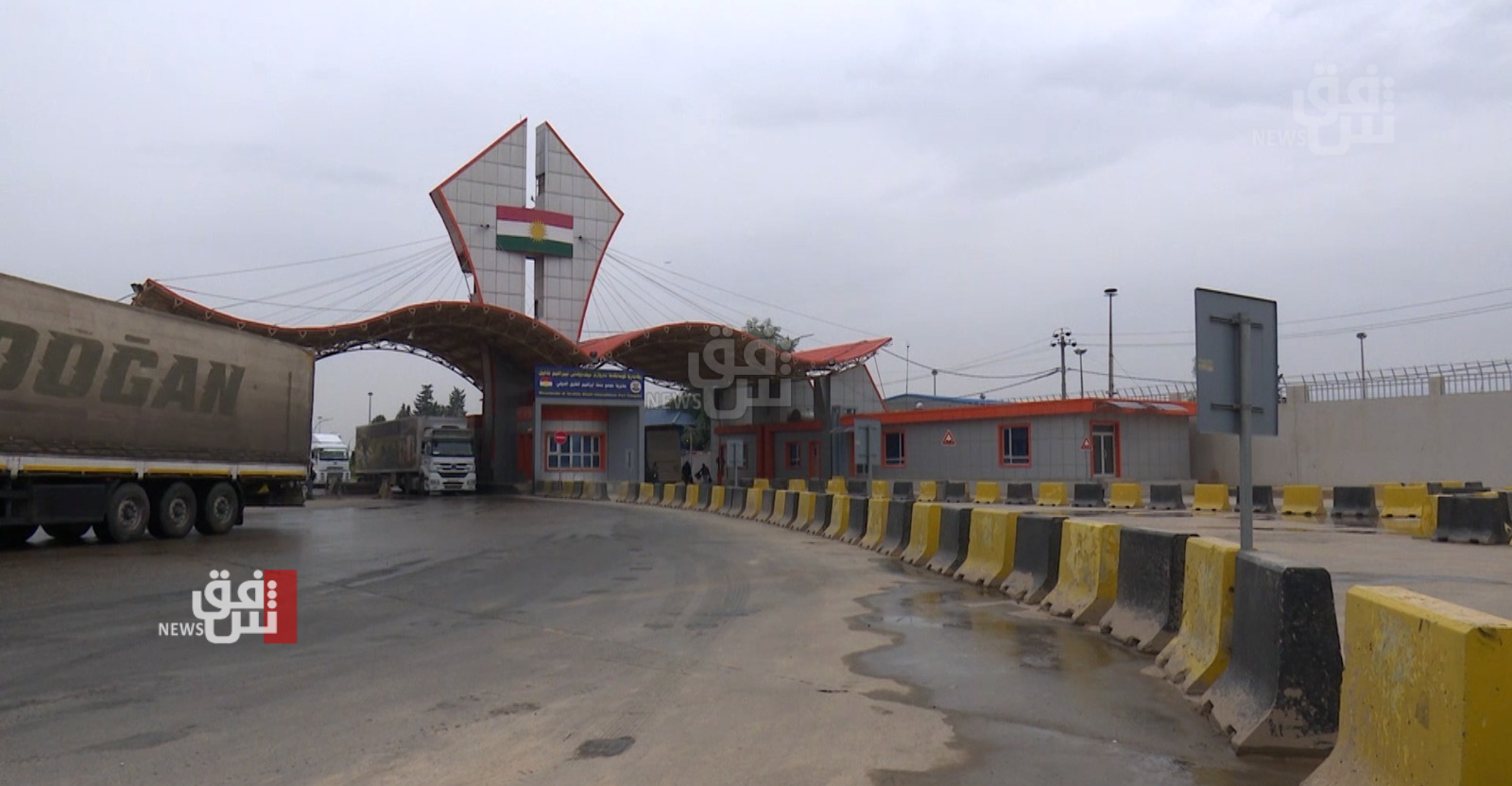Turkiye is shifting foreign policy by building economic partnerships with regional actors: MEE

Shafaq News/ Turkiye is shifting its foreign policy towards regional cooperation and economic development by focusing on building stronger bilateral relations with countries in the Middle East, a report by the Middle East Eye suggested on Sunday.
President Recep Tayyip Erdogan’s “historic” visit to Iraq last month shows that Turkiye has decisively adopted a new foreign policy concept, seeking regional cooperation with a focus on bilateral relations.
This concept has two pillars: an economy-oriented foreign policy and cooperation with regional states. By creating multiple mutual dependencies, it aims to foster regional stability.
From this point of view, Turkiye is putting forward a vision to drive regional policy in the Middle East. Before Iraq, Turkiye reached out to Egypt, Saudi Arabia, and the UAE. The Middle East faces many challenges, and a new positive orientation is needed.
Turkiye had become a model country for the region before the 2011 Arab Spring uprisings, but its foreign policy balance has changed since then.
Developments in the Syria war, disputes over Libya and the Eastern Mediterranean, and the Russia-Ukraine conflict have all contributed to Turkiye prioritising crisis management in its foreign policy.
While these crises remain unsolved, control and balance have been asserted. Turkiye has also been able to leverage its influence in the Israel-Palestine conflict and the Iran-Israel-US triangle, while the advantage Turkiye gained with Azerbaijan in the Nagorno-Karabakh dispute strengthened Ankara’s regional hand.
Still, the regional rivalry between Turkiye and Iran persists, with Iraq and Syria constituting the main bases for this rivalry. Turkiye has held talks with Iran, Syria, and Russia on regional issues, and it is now turning to Iraq.
Regional cooperation
Especially since the 2019 anti-government protests in Iraq, it has been hard to ignore the public’s resentment of Iranian influence in the country. But while Iran’s influence in Iraq has weakened since the US assassination of Iranian commander Qassem Soleimani in Baghdad in 2020, Ankara does not seek to exclude Tehran.
Rather, it wants Iran to retain a regional role, but in a controlled manner - for the more Iran is removed from the process, the more aggressive it may become. In such a scenario, it would be increasingly difficult to develop the concept of regional cooperation.
Ultimately, Iran’s declining influence seems to have been reinforced by the adoption of an economic and service-based government programme. When Sudani announced his government programme, economic development was high on the list of priorities. For this purpose, he first worked on the budget law, which had not been approved by the parliament for the last two years, and for the first time in Iraq, the three-year budget for 2023, 2024, and 2025 was approved together.
Thus, with the Sudani government, Iraq is talking more about economic progress and sustainable development than politics. This has been widely accepted by the Iraqi people and politicians, especially after the 2021 elections, and its efforts to develop balanced relations with its neighbours and regional countries.
This provides Turkiye with an excellent opportunity to cooperate with Iraq, as they work to keep Iran in balance without totally excluding it.
Iraq is a base of operations for Iran’s Middle East policies - and Tehran does not want to lose it completely. For example, we do not see the commanders of the Revolutionary Guards in Iraq as much as we used to. In addition, Iraqi militia groups seem to prefer to carry out more actions outside Iraq than inside Iraq. This situation can be interpreted as Iran reducing the pressure in Iraq.
This provides Turkiye with an excellent opportunity to cooperate with Iraq, as they work to keep Iran in balance without totally excluding it.
It seems as though Turkiye might be endeavouring to create something similar to the Non-Aligned Movement that emerged after World War II. The centre of this movement could be Iraq - and this is why Turkiye has attached great importance to their bilateral relations, even taking initiative to solve Iraq’s internal political problems. Turkiye can do this by playing a mediating and helping role in resolving the problems between Baghdad and Erbil. This was one of the purposes of Erdogan's visit to Erbil together with Baghdad.
In the coming months, we may see other regional countries - such as Saudi Arabia, Jordan, Qatar, and the UAE - step up to support the economic initiative developed by Turkiye and Iraq, amid talk that Iran, or even Syria, could eventually be integrated into their Development Road project. The project could thus become a major contributor to stability in the Middle East.



